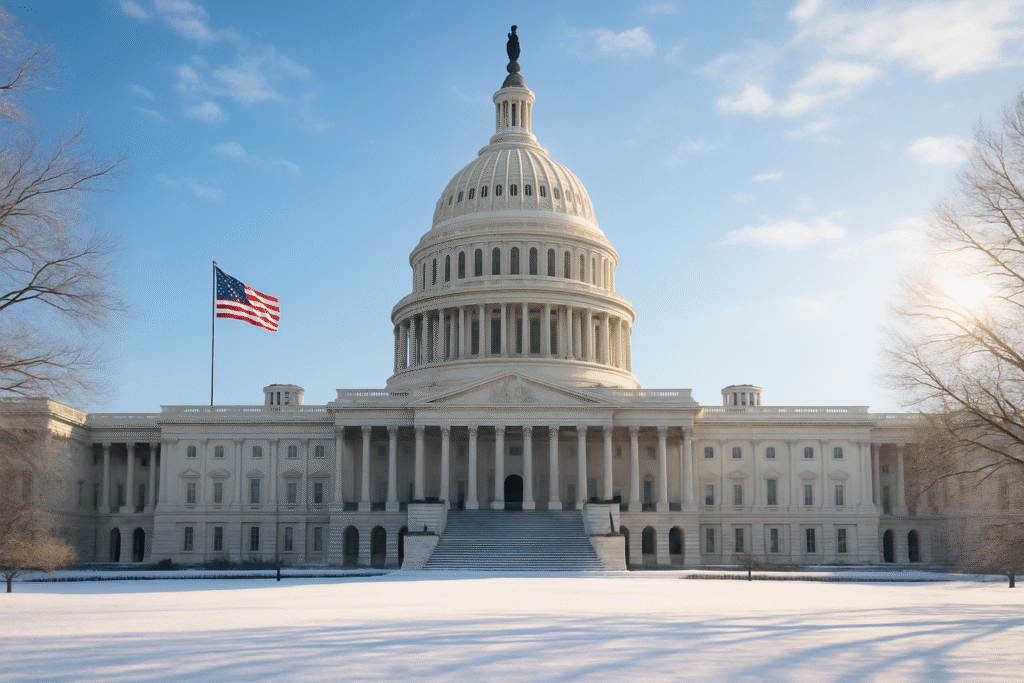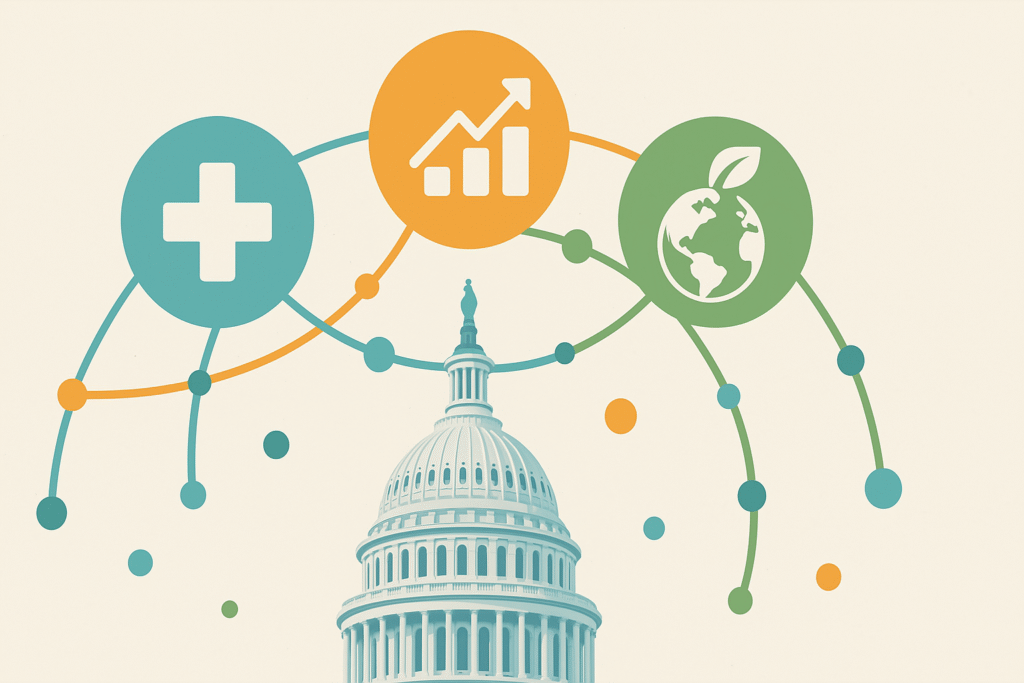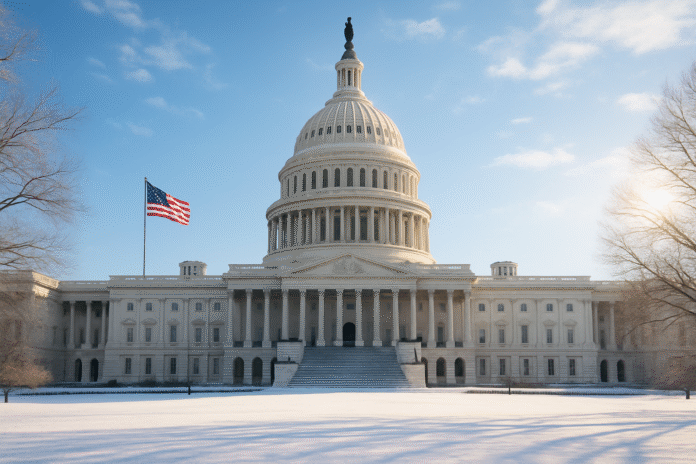Introduction
The 2025 U.S. Congress has officially begun its term, marking the start of what many are calling a defining year for American policy changes. With Republicans holding a narrow majority in the House of Representatives and Democrats controlling the Senate, the year ahead will be defined by negotiations, compromises, and—at times—political standoffs.

What happens in Washington over the next 12 months could shape the nation’s direction for years to come. From healthcare reform to climate legislation, and economic policy to foreign affairs, the Congress policy 2025 agenda will touch nearly every aspect of American life.
Party Control and Leadership
In the 118th Congress:
- House of Representatives: Republican majority, led by Speaker Mike Johnson (R-LA).
- Senate: Democratic majority, led by Majority Leader Chuck Schumer (D-NY).
A split Congress means passing major legislation will require bipartisan cooperation. While this setup can slow the pace of policymaking, it can also produce more balanced, broadly supported laws—if both sides are willing to work together.

1. Healthcare Reform
One of the most significant priorities for the 2025 U.S. Congress is healthcare. Lawmakers are considering measures to expand Medicare benefits, reduce prescription drug prices, and increase funding for mental health services.
Democrats are pushing for broader preventive care coverage and caps on out-of-pocket costs. Republicans generally favor introducing more private sector competition into Medicare to lower costs.
📌 Related Reading: What is Medicare and How Does It Work in the U.S.?
2. Economic Stability and Job Growth
Even with inflation slowing from its peak in recent years, many households are still feeling financial strain. The Congress policy 2025 agenda includes discussions on targeted tax relief, small business support, and infrastructure investments aimed at creating jobs.
Republicans want to prioritize corporate tax cuts to encourage business expansion. Democrats prefer middle-class tax relief and increased federal funding for workforce development programs.
📌 Related Reading: U.S. Housing Market Sees Signs of Recovery in 2025
3. Climate and Energy Policy
Climate legislation remains one of the most divisive topics in the 2025 U.S. Congress. Democrats are pushing for expanded renewable energy subsidies, stricter carbon emission limits, and larger EV tax credits. Republicans advocate for a balanced approach that includes both renewable energy and domestic oil and gas production to maintain energy independence.
📌 Related Reading: New Electric Vehicle Tax Credits Roll Out in 2025
4. Foreign Policy and National Security
With global tensions in Eastern Europe, the Middle East, and the Indo-Pacific, the Congress policy 2025 agenda includes strengthening defense capabilities. There is bipartisan agreement on maintaining strong alliances, but debates continue over military budget size and allocation.
The House Armed Services Committee is also planning hearings on cybersecurity threats, particularly concerning election security ahead of the 2026 presidential race.
5. Technology and Innovation Policy
The rise of artificial intelligence, data privacy concerns, and the need for 5G infrastructure are also on the table for the 2025 U.S. Congress. Lawmakers are considering new regulations on AI use in public services and stronger data protection laws for consumers.
Expert Opinions
According to the Congressional Research Service (external DoFollow link), divided governments typically pass fewer bills, but the legislation that does pass often has broader bipartisan support. Political strategist Sarah Matthews notes, “The success of the 2025 U.S. Congress will be measured not by the number of bills passed, but by the real-world impact of those policies.”
What It Means for Everyday Americans
The decisions made by this Congress will directly affect:
- Healthcare costs for seniors and working families.
- Job opportunities in technology, manufacturing, and infrastructure.
- Energy bills through renewable energy programs and fuel policies.
- Taxes via changes in federal tax brackets and deductions.
For example, a new infrastructure package could create thousands of construction and engineering jobs, while adjustments to Medicare drug pricing could lower monthly expenses for millions of Americans.

The Road Ahead
With the 2026 presidential election already in focus, both parties will seek policy wins that can be showcased to voters. Whether the 2025 U.S. Congress is remembered for bipartisan achievements or political stalemates will depend on its ability to find common ground.
Call to Action:
Stay informed on every development in the 2025 U.S. Congress by visiting our U.S. News and Politics sections daily.


